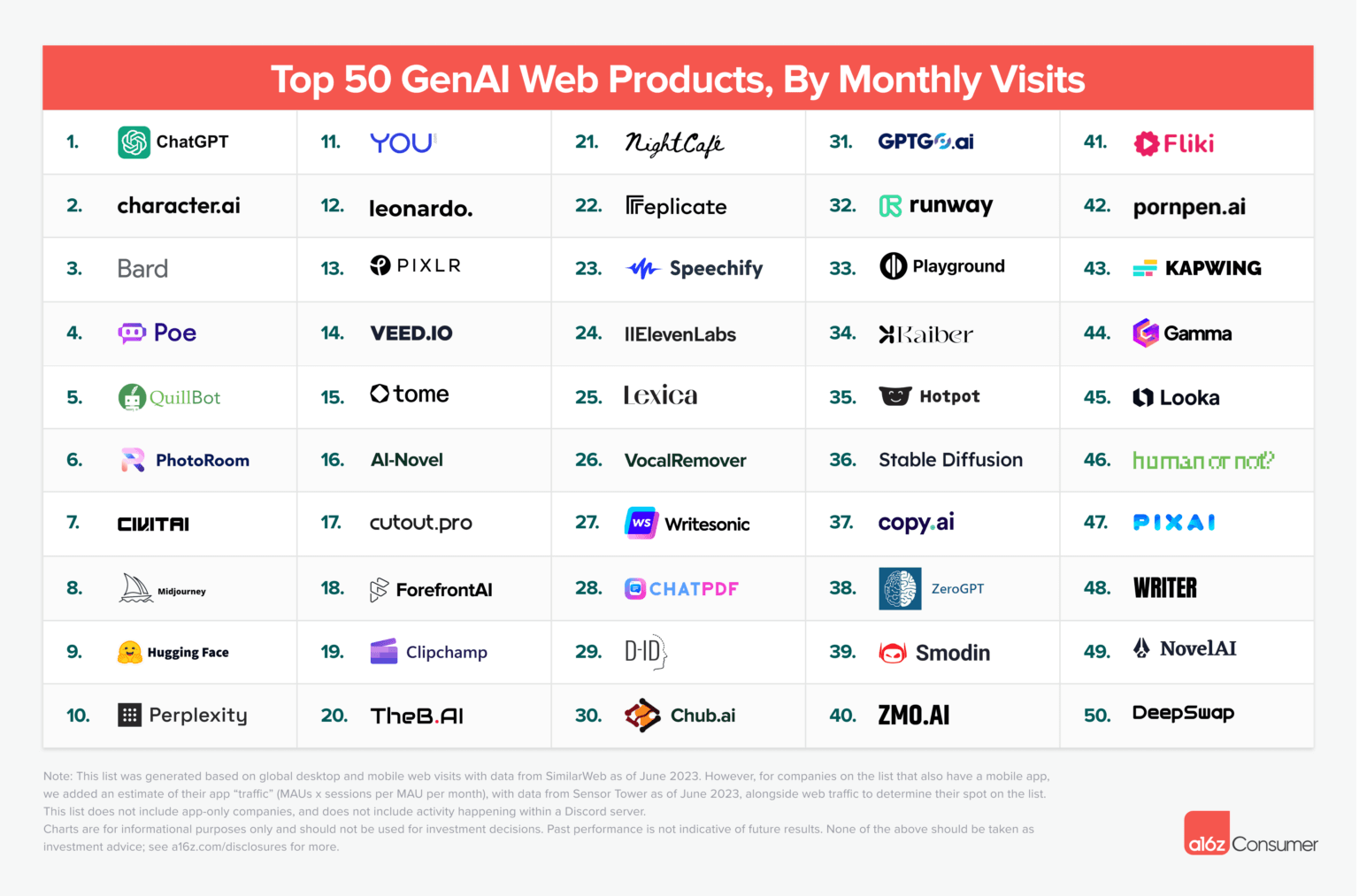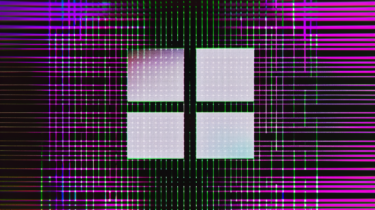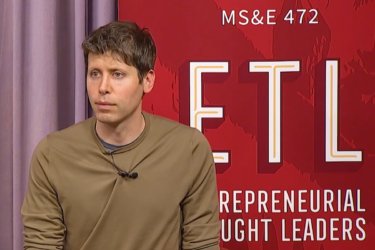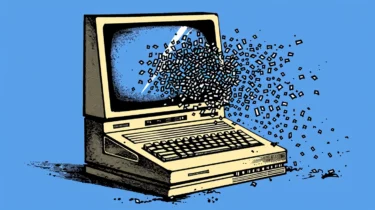Generative AI is supposed to change our work in many areas, but web statistics show that the sector is driven and dominated by ChatGPT.
A16z analyzed traffic to various GenAI-related websites using Similarweb. Among the top 50 "GenAI" web applications, ChatGPT is by far the most popular, accounting for 60 percent of the total traffic.
The second and third most popular GenAI apps are Character AI, a chat app mostly used for entertainment, and Google's Bard chatbot. However, the gap to ChatGPT is so large that their impact is hardly significant.
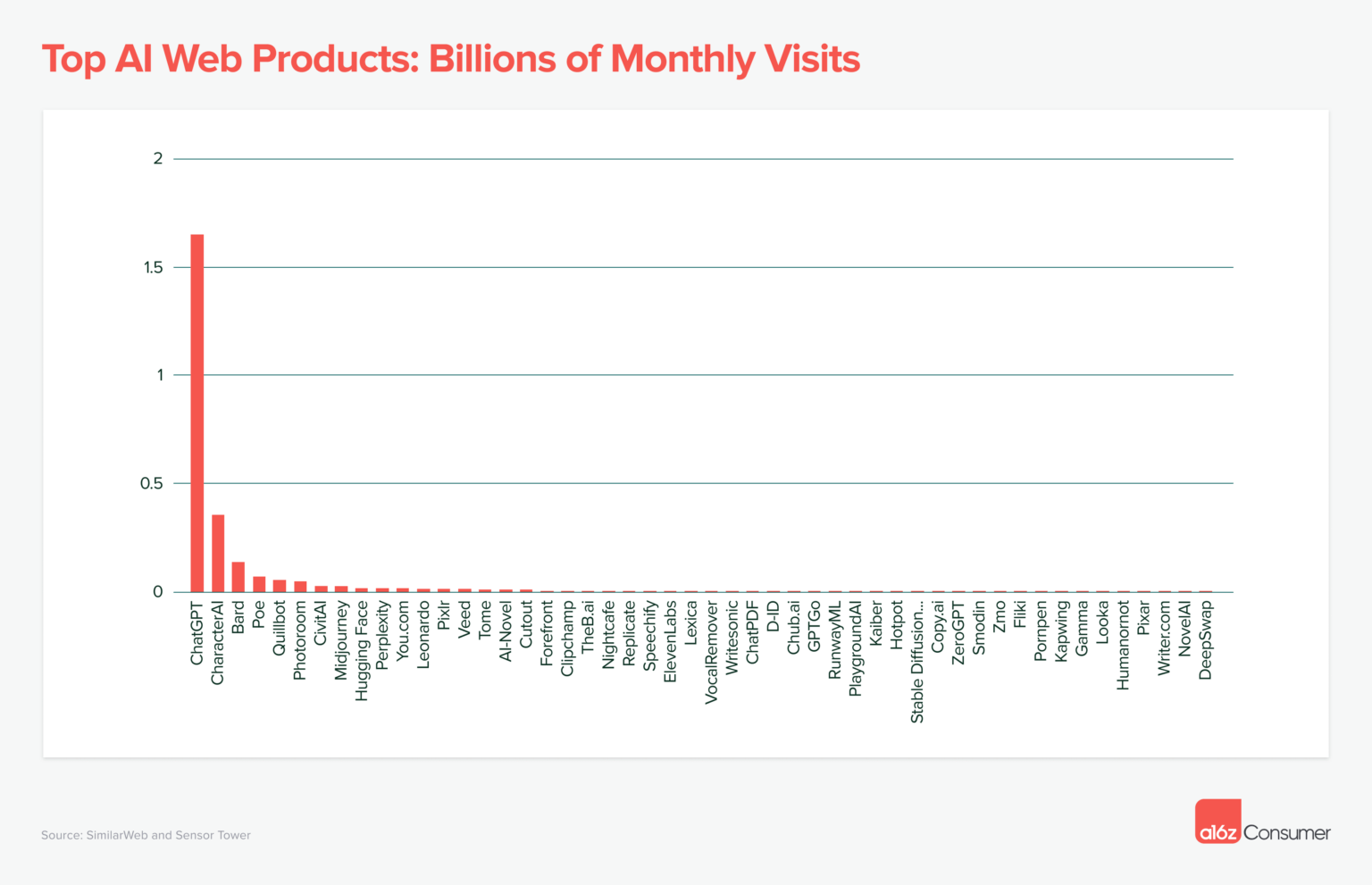
Considering that many text-based GenAI applications such as Poe or Perplexity.ai are based on OpenAI technology, this shows the enormous dominance of the ChatGPT company in a relatively small market.
ChatGPT is still a small phenomenon
Putting ChatGPT traffic in relation to popular web platforms again puts the scale of GenAI into perspective. Even if the comparison is flawed because platforms like WhatsApp or YouTube serve very different purposes, the statistics show that ChatGPT as a giant within GenAI is a rather small phenomenon overall, roughly on the traffic level of Yahoo or Canva.
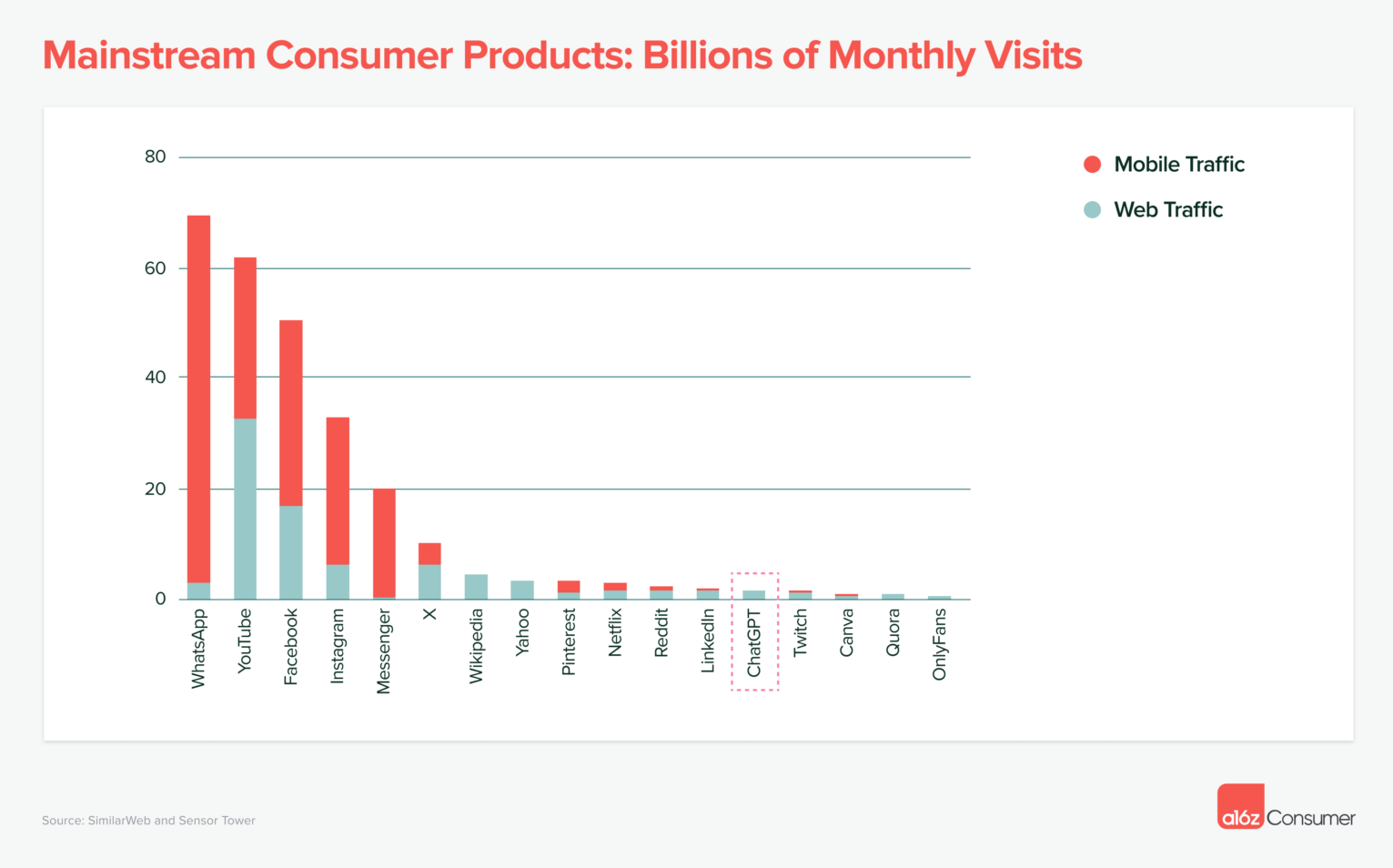
What do these statistics tell us? ChatGPT and Generative AI are still rather niche phenomena, despite a rocket start.
The tools are already useful for many people, but they are still looking for a solid place in many areas. Moreover, their cost-benefit ratio is increasingly being questioned, and the very basis of their existence is being challenged in court.
Next-generation models could lead the way
Whether the current hype and prophecies about the massive impact of generative AI on our lives and work are exaggerated will become clearer when the next-generation models (Gemini, GPT-5, Claude 3, ...) hit the market.
Will they be five or ten percent better than today's systems? If so, large language models and other generative AI systems will remain useful tools that can extend, speed up, or simplify some text or image work and help with creative thinking.
In other words, they will do what they can do today, just a little better and more efficiently. It's useful, but it won't change the world.
Or will we again see leaps in performance like from GPT-2 to GPT-3, or even steeper? If so, many professions that make their money primarily with thoughts, words, and images are likely to face fundamental changes. This is my assessment as someone who makes his money primarily with words.
Until then, GPT-4, Midjourney and Co. are tools that make my daily work a little easier or, in the case of Midjourney and Co., open up new creative possibilities. GenAI systems support my work, but my work remains the same.
With text AI tools, I deal with issues like scaling (multilingual, frequency) and simple text tasks that follow fixed patterns (summaries, social media) or benefit from fast generative creativity based on existing content (headline suggestions, metaphors, synonyms, corrections). I use it like a calculator, but for words, formatting existing content into new variations. What bothers me here is that no LLM out there comes close to the capabilities of GPT-4. Granted, I haven't had a chance to test PaLM 2 so far.
With image AI systems, I can develop an original visual language and visualize ideas on a shoestring budget. It's not a replacement for human labor, because I couldn't afford human labor in this area in the first place. I love Midjourney and wouldn't want to miss it in my workflow. It makes me more capable and gives me an extra language to express myself creatively.
In general, I think today's generative AI systems are less about helping people who are already excellent at something do it better, and more about enabling people to do tasks at a reasonable level that they otherwise couldn't do, or could only do with a lot of effort.
For me as an editor, the most important tool is not ChatGPT, but DeepLWrite, with its fast, multilingual proofreading. It has changed the way I write and for whom.

